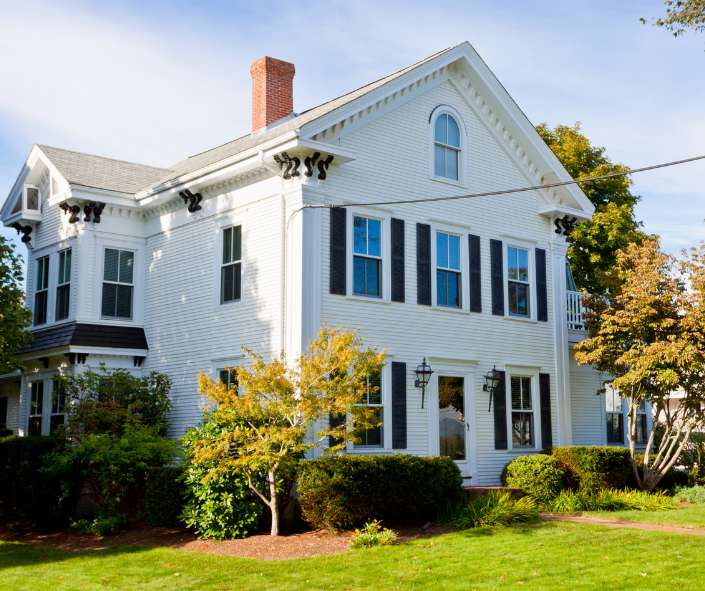From the summer haze over Massachusetts beaches to the snow-topped mountains of Maine, New England’s weather is famously unpredictable. If you live here, you know that temperatures can vary drastically from season to season, day to day, and sometimes even hour to hour. While the region’s beauty and rich history are undeniable, this climate presents unique challenges for homeowners and business owners—especially when it comes to indoor comfort.
Keeping your home or business comfortable year-round is essential—but so is managing costs. Energy efficiency, system reliability, and longevity all matter when choosing an HVAC solution. In New England, it’s crucial to prioritize durability, adaptability, and efficiency. This guide will help you think like a New England HVAC pro so you can select the right system for your property.
Key Seasonal Considerations
Certified HVAC professionals know that your home’s construction and the outdoor climate are critical factors in system selection. In New England, a system must handle all four seasons:
Spring
Spring brings tulips, lush gardens, and dramatic temperature swings, along with frequent rain and muddy conditions in rural areas. The ideal system can warm your home in the chilly morning and switch to cooling by afternoon—without wasting energy.
Summer
High humidity, thunderstorms, and occasional heatwaves make indoor climate control more challenging in the summer. Cooling systems should reduce indoor temperature and control humidity to prevent mold and protect furniture and wood floors.
Fall
Crisp air, fluctuating temperatures, and heavy leaf debris require a system that adapts quickly. It could be 70°F in November one day, then snowing the next.
Winter
Freezing temperatures, heavy snowfall, strong winds, and nor’easters demand heating systems that perform reliably in extreme cold. Recent fluctuations have caused more ice buildup, making efficiency and durability essential.
Additional Factors to Consider
Home Age and Construction
New England’s historic homes are charming but can challenge modern HVAC systems. Older homes often lack ductwork or proper insulation, which can reduce system efficiency. A professional assessment ensures your system is tailored to your property’s unique needs.
Fuel Type
Make sure you have a consistent and reliable fuel source for your system. Some areas lack natural gas or oil delivery, and power outages can impact electric systems.
Zoning
Multi-level homes or properties with additions benefit from zoned HVAC systems, which allow independent temperature control in different areas. This helps prevent hot or cold spots that are common in Massachusetts homes.
Rebates and Incentives
New England states often offer incentives for high-efficiency HVAC upgrades. Programs are updated yearly, so check eligibility before purchasing.
Smart Home Technology
Smart thermostats adapt to weather, occupancy, and more. They improve comfort, energy savings, system longevity, and indoor air quality while making it easier to maintain the ideal indoor climate.

Top HVAC Systems for New England
- Ductless Mini-Split Heat Pumps
Mini-splits were once limited in cold climates, but modern units handle New England winters with ease. They provide precise, room-by-room climate control and are ideal for homes without ductwork, common in older properties.
Ideal for: Homes lacking ductwork, older residences, home additions, or energy-conscious households.
Advantages: High energy efficiency, individual room control, no duct maintenance, often qualifies for rebates.
Disadvantages: Higher upfront cost; visible indoor units may not suit all aesthetics.
2. Central Air Conditioning with a Gas Furnace (Split System)
Split systems combine central AC for summer with a gas furnace for winter. This traditional solution delivers reliable heating and cooling, especially in larger homes with ductwork and natural gas access.
Ideal for: Homes with existing ductwork and natural gas connections.
Advantages: Consistent heating, familiar technology, compatible with smart thermostats.
Disadvantages: Less efficient in mild weather, relies on fossil fuels, requires regular maintenance.
3. Air-Source Heat Pumps
Air-source heat pumps provide energy-efficient heating and cooling year-round. They are a versatile option, offering a middle ground between mini-splits and traditional split systems.
Ideal for: Homes with ductwork seeking an all-electric, energy-efficient solution.
Advantages: Efficient for heating and cooling, single system for year-round comfort, reduces fossil fuel use.
Disadvantages: May need supplemental heat in extremely cold temperatures; higher upfront cost than a traditional AC/furnace combo.
For more information, contact the Pierce Refrigeration team, and one of our experts will guide you in finding your solution.
Need 24/7 emergency service? Looking for advice on improving your everyday air quality and comfort at home and work? Contact the friendly staff at Pierce Refrigeration at 800-696-1088 or email us at: info@piercerefrig.com.

